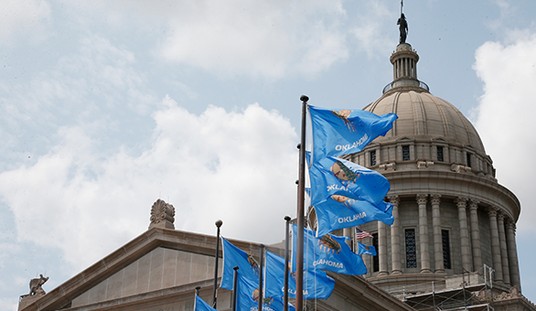For a while now, there’s been this desperate push to claim that there’s a middle ground to be had on gun rights. Anti-gun zealots want to paint it as though there’s broad, bipartisan support for gun control so as to make it look far more palatable to politicians.
After all, that’s the only way anything is getting passed.
And so it seems “researchers” are trying to prove such a middle ground exists. Here’s the latest attempt.
Researchers at UNLV found that left-and right-leaning political parties taking to Twitter after mass shootings are starting to find middle ground, calling for gun control and mental health services.
Mary Blankenship, a researcher with Brookings Mountain West at UNLV, reviewed more than a million Tweets responding to the recent mass shooting in Buffalo, New York, Uvalde, Texas, and Highland Park, Illinois. She sorted users based on self-reported political affiliations and examined their statements.
“Both sides are having discussions of gun control measures,” she said in an interview Friday with the Las Vegas Review-Journal. “A ban of assault weapons, increasing background checks or improving access to mental health care, these are not outrageous things for citizens to want.”
…
Blankenship, who is also a graduate student at UNLV, has been studying public responses to mass shootings since the Oct. 1, 2017, shooting on the last night of the Route 91 Harvest music festival left 60 people dead.
She said most of the responses to the Oct. 1 shooting on the Strip included “thoughts and prayers,” a statement that she doesn’t see as often now in the conversations following recent mass shootings.
“In some ways it is a good thing, people understanding that we need more than thoughts and prayers,” she said. “My concern is that those sentiments are being replaced by cynicism, misinformation and accusations that get in the way of constructive discussions.”
Sure they are. After all, when “thoughts and prayers” are routinely mocked, people just stop offering them. Of course, her claims of “misinformation” likely don’t include claims over how gun control actually works or any of the other nonsense we hear routinely.
However, is Blankenship right about her findings? Damned if I know. What I do know is that her findings don’t match what I routinely see on Twitter, nor what a number of other people involved in the gun debate report seeing either.
Sure, there are a few people with more rightward leaning politics who offer up some discussion of gun control after such shootings, but they’re typically not that common. Most who I encounter are on the opposite end of the spectrum.
I’m not saying Blankenship fabricated data, mind you, only that she likely saw what she wanted to see.
Tweets are generally open for the public to view, but that doesn’t mean Blankenship actually saw all of them or really delved into the millions of tweets on the subject of gun control. She likely saw whatever Twitter boosted, which is a problem because we know Twitter isn’t exactly unbiased itself.
And let’s be honest, Twitter isn’t the real world. What’s popular on Twitter is often very different than what you’ll see in polling or in elections.
So this middle ground Blankenship claims exists is likely more artificial than anything. It’s an artifact of confirmation bias, a strange subset of the public, and Twitter shenanigans more than anything real.
As a result, I not going to get too spun up on what Blankenship’s findings actually are. Instead, I’m going to point and laugh at how she seems to think Twitter is real life. It’s not and discussions there often bear no resemblence to what happens in the rest of the world.








